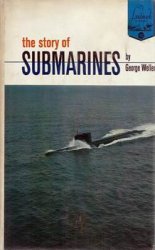Law enforcement personnel are frequently involved in so-called “commissioned cases” (zakaznye dela), in which a company secures law enforcement support for an attack on a business rival.359 The phenomenon of commissioned cases is one among multiple tactics used by “corporate raiders” in Russia.360 These criminal takeovers can involve firms ranging in size from a corner store to Russia’s biggest companies, such as Oleg Deripaska’s Basic Element, which engineered several such high-profile takeovers in 2000-2002. Carrying out such commissioned cases involves not only the use of the courts to initiate lawsuits or bankruptcy cases, but also armed state units, such as MVD OMON troops to physically seize the assets, and police or procuracy support to bring criminal cases against one’s rivals. FSB officers have also actively participated in the redistribution of property. Putin called attention to the problem at a February 2003 meeting of the MVD Collegium, declaring: “the involvement of MVD employees in corporate wars and economic disputes is, I would like to stress, very dangerous. I ask you to stay far away from that.”361
For example, the Nizhniy Novgorod region was the scene for two such commissioned cases in 2003, both involving food production companies. In both cases, courts and law enforcement organs were enlisted by both sides, the “attacker” and the “defender.” In an attack on the Lysovsky Beer Factory, a colonel from the MVD administration of the Volga Federal District organized a meeting between the factory director and an agent of the hostile party and then brought in fifteen MVD agents to pressure the factory leadership with the threat of a criminal investigation. The regional prosecutor, however, sided with the factory, and the colonel faced potential dismissal.362
Vadim Volkov noted that in one sense, the increasing prominence of such cases in the early 2000s showed the strengthening of the state relative to the early 1990s, when mafia groups were much more active in such disputes. Now, he stated, “the major instruments of aggressive enterprise takeovers are corrupt state organizations that have judicial and coercive power.” The problem, Volkov continued, is that state employees behave like bandits. Similarly, the Moscow Times noted that the use of law enforcement organs to settle commercial disputes represents “an assault on the state by the state.”363
The importance of commissioned cases to Russia’s commercialized law enforcement structures was apparent in the protracted struggle over which agencies have the legal right to initiate criminal proceedings. In the 2002 Criminal Procedure Code, the law was changed so only procurators could formally initiate criminal proceedings against someone. Police complained that the new requirement represented an unnecessary burden, but other observers thought the real objection was that the police had lost the ability to formally instigate commissioned cases, although police and other law enforcement agencies could still open investigations, which often could be enough to pressure a business. The 2002 change was reversed in 2007, although procurators retained the power to reverse a decision by an investigator (police or otherwise) initiating a criminal case. Police investigators lobbied heavily for this change. One observer characterized this protracted fight as a “battle over who gets bribes.”364
The Yukos affair that began in 2003 and continued for several years was in some sense post-Soviet Russia’s largest “commissioned case,” with the firm Rosneft using its access to the power ministries (top Kremlin aide and silovik Igor Sechin was chair of the Rosneft board of directors at the time) to carry out a forceful redistribution of property. Further evidence for the importance of the practice of forced takeovers came in late 2007, when Russian businessman Oleg Shvartsman caused a miniscandal with his public assertions that his company had strong backing from prominent siloviki such as Sechin, and that they relied on their ties to current and former power ministry officials to conduct their business, including the use of “voluntary-coercive instruments” to reduce the price of enterprises. Although questions were raised about some particulars of Shvartsman’s account, and it was speculated that he was being used as part of clan battles around the Kremlin, few doubted that his general account of business methods accurately reflected reality.365




 World History
World History









